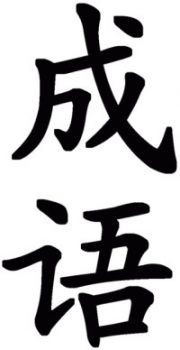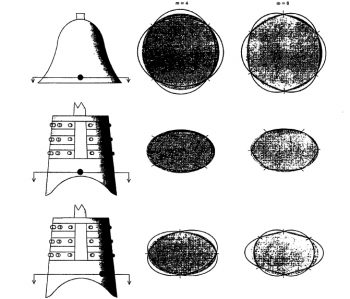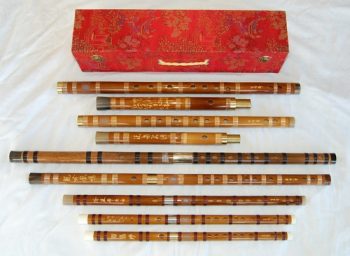Archive for September, 2011
Idioms Explained Posted by Stephen on Sep 24, 2011
Idioms or 成语 (chéng yǔ) are very prevalent in Chinese writing and even in common day sayings. Much like idiomatic expressions used in English, the Chinese equivalents are an amalgam of history, cultural influences and scholarly debate, imparted upon Mandarin and Cantonese over thousands of years. Further, because Chinese and English are the two largest…
For Whom the Bells Toll: BianZhong (编钟) Posted by Stephen on Sep 22, 2011
Before the days of zithers, silk-strung bows and reed instruments, making Chinese traditional music was both a simple and grandiose affair. Limited by the tools and resources available back some three millennium ago, it was quite difficult to create instruments with enough precision to replicate specific melodies and notes on an individual scale. Percussion ruled…
The Yin and Yang of GDP and Environment Posted by Stephen on Sep 21, 2011
Anyone looking for a lesson in both climate change and sustainability (持续性 chíxùxìng) needs to visit China. In a country full of contradictions or 矛盾 (máodùn), it only makes sense that some of the worse environmental degradation is contrasted by very progressive attempts at conservation and sustainability wherever possible. China is unique because nowhere else…
Yes/No Questions Video Posted by sasha on Sep 20, 2011
The Chinese language lacks a direct translation of the words “yes” and “no.” This causes a lot of confusion amongst foreigners studying the language. It’s also the source of a lot of cultural misunderstandings for people traveling or living in the country. In a follow up to Steve’s written post, this short video tries to…
Yes? No? Maybe so. Posted by Stephen on Sep 15, 2011
Most people learning Chinese have exclaimed that “it’s like learning two, if not three new languages all at once”. While it may not be as difficult as learning Chinese, Japanese and Korean at the same time, there is some truth in this. Let’s take the process of learning beginning Chinese. First, before even looking upon…
Chinese Bamboo Flute (笛子) Posted by Stephen on Sep 13, 2011
The Chinese bamboo flute or 笛子 (dízi) is the most popular of the Chinese flutes and woodwind instruments. The versatility and range of the instrument, coupled with the portability and price, makes the dizi easily accessible and useful across many genres of Chinese music. For aspiring musicians, it’s a more refined version of the western…
Chinese Traditional Drumming (传统鼓乐) Posted by Stephen on Sep 12, 2011
Percussion is the oldest form of non-vocal music, and as a result, reflects many of the social and historical peculiarities that evolve throughout a culture. In China, traditional drumming is associated with pomp, circumstance and jubilation. It is a hallmark of prosperity and celebration, uniting people through collective rhythm and tempo. As China continues to…








